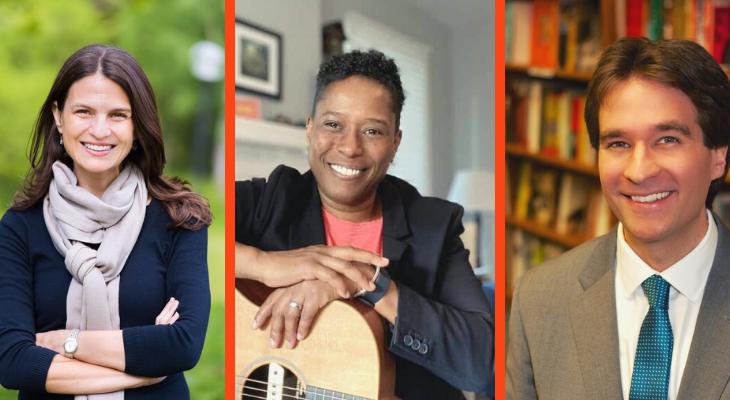Three Rabbis Reflect on the Meaning of Freedom this Passover
March 25, 2021

In every Passover seder, the question is asked: “Why is this night different from all others?” Passover has been celebrated for thousands of years, yet each year, the Jewish Holiday comes at a particular moment in history. Even as the story of liberation at the center of the seder reaches back in time, the wisdom that comes in its observance reflects the concerns of the Jewish People and society in the present. As Rabbi Sharon Brous, the Founder and Senior Rabbi of IKAR shared at a recent Shabbat service, “Our work at the seder is to experience this story as memory so that its message of hope and sacred responsibility will continue to animate our lives.”
To understand some of what might be heard at sermons across the country I asked three Rabbis, including Rabbi Brous, to tell me how they were thinking of Passover this year. Rabbi Sandra Lawson, who recently left her work as a Jewish Chaplain at Elon University to become the new director of Racial diversity, equity, and inclusion at Reconstructing Judaism, plans to have a small in-person (fully vaccinated) seder with her wife and another family on the first night, and then join in a virtual seder with the wider Jewish community in Greensboro, North Carolina.
“We are on the shores leaving ‘Mitzrayim’ (which literally translates to Egypt but is accurately translated as the narrow place or the place of pain and constriction) that we have experienced from Covid-19 and racial inequities and a former president who I believe was dangerous for our society,” Lawson explained to me over the phone. “As more of us are getting vaccinated and we move from the immediate pain of Covid, we are engaged in Heshbon Hanefesh, which is an internal accounting of our souls. We are asking ourselves who we have been, who we are, and who we want to be. Will we rise up on the wings of freedom and move towards liberation, will we address the inequities in our society?”
Rabbi Joshua Stanton serves at East End Temple in New York City and is also reflecting on how what freedom in the Passover story means for our current moment and the tension between our personal freedom and the freedom of society as a whole. “Passover is known in Jewish tradition as z’man cheruteinu — “our time of freedom,” when we celebrate our ability to do remarkable things as free people. This year, we examine the notion of what Isaiah Berlin termed positive and negative freedom. Are we willing to sacrifice everything for the freedom to do whatever we want? Or must we give up some of the boundless possibilities of individual autonomy for the common good?
“Many of the same people who pursue their individual freedom at all costs often seem indifferent when Jews — or black folks or Muslims or Sikhs or Asian Americans or LGBTQ people or countless others — are not free from real and immediate threats to their well-being. Why in our culture do we so prioritize the freedoms of some to do whatever they want over the freedoms of all to feel physically safe? This is the fifth question at our seder tables this year. It will not be easy to answer.”
Rabbi Brous continues the common theme of freedom and responsibility, pulling the lens back to consider the sweeping history of the Jewish people, and then zooming into our present moment.
“The story we tell at our Seder—which has stood at the beating heart of our people for millennia– tells how our ancestors suffered hundreds of years of brutality, affliction, and abuse, and then walked triumphantly from enslavement to liberation, from darkness to light, from degradation to dignity, from narrowness to expansiveness, paralysis to possibility. As our anguished hearts struggle to manage the compounding crises of pandemic, racism, the climate, and democracy, all on top of the profound grief, loss, and isolation of this time, this story matters more than perhaps ever. It is an eternal reminder of the tragedy and the triumph—a call to reorient our lives toward hope and sacred responsibility.”
Share
Related Articles
American Civic Life
The Ordination of the First Female Rabbi 50 Years Ago has Brought Many Changes – and Some Challenges
American Civic Life
American Civic Life
A Shortage of Conservative Rabbis has Jews Reexamining the Pulpit Role



